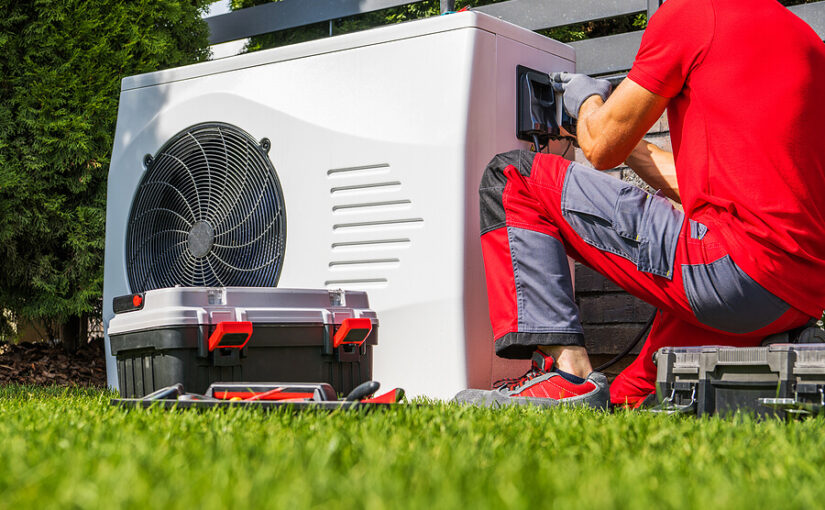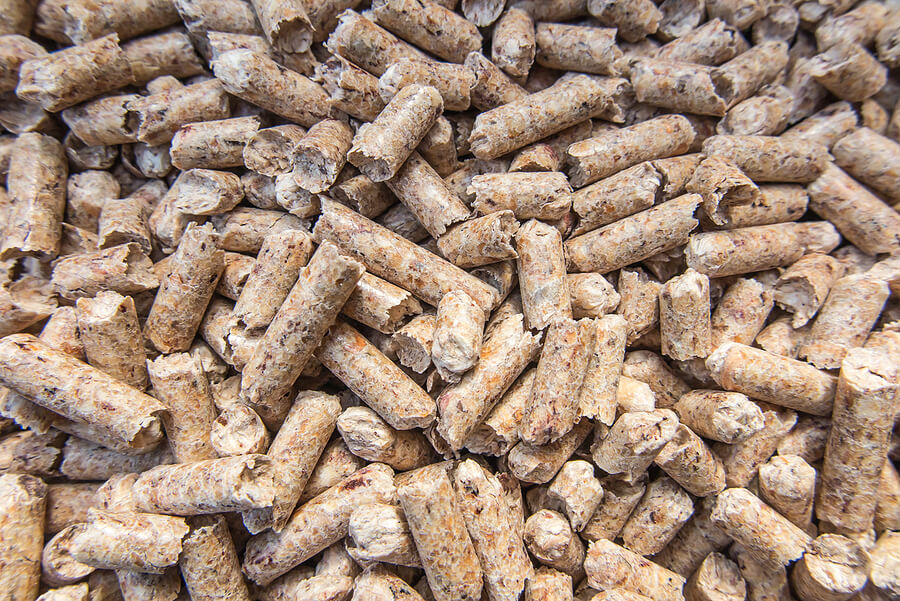With oil and gas prices reaching staggering heights and the climate crisis at a critical level, many are seeking more eco-friendly heating options.
Luckily, recent technological advancements have provided an array of solutions to choose from. Discover the best eco-friendly heating systems and learn how to choose the best one for your home.
Heat pumps
A heat pump extracts outside heat and pumps it into the house. It’s one of the most efficient eco-friendly central heating options, providing roughly three units of heat for every unit of electricity you use.
Depending on the type you choose, using a heat pump can reduce your carbon footprint by at least two-thirds.
You can opt for a ground-floor heat pump that extracts heat from the soil or a hybrid heat pump that works alongside your gas boiler.
Newer, high-temperature heat pumps match gas boilers in temperature, reducing the need for larger radiators. Air source heat pumps may be more suitable for smaller houses and flats and work by blowing hot air into the home instead of hot water.
Installing a heat pump requires some disruption to your home, such as pipework, and some heat pumps need larger radiators. However, the abundance of heat sources makes heat pumps one of the most eco-friendly heating systems available.
Infrared heating panels
Infrared heating panels are relatively new to the eco-friendly heating industry and warm your home by heating objects rather than the air.
You’ll likely spot a version of them on colder evenings outside pubs and restaurants. However, you can also use the technology to heat your home.
Infrared heating panels are generally lightweight and thin, making them one of the best eco-friendly heating options for smaller spaces.
The panels emit infrared light, which sold objects absorb. The molecules then vibrate, heating the item, room, or person. Infrared heating panels operate silently, require little maintenance, and are ideal for allergy sufferers as air isn’t circulated.
Cost-wise, infrared heating panels are generally cheap to run. One study suggests heating a home in winter for up to eight hours a day costs around 30p per kWh of electricity, far less than gas alternatives and a good choice for eco-friendly house heating.
Solar thermal panels
Solar panels utilise heat from the sun and convert it into energy for use around your home. A popular eco-friendly heating option, they are often used in conjunction with other systems to generate enough power to heat a house efficiently.
The panels are usually fitted to a roof or other area that receives large amounts of sunlight. Energy in the solar collectors (a heated fluid) is then transferred to a hot water tank, ready for use.
Solar power is a renewable energy source that comes with a high upfront cost but offers a lower carbon footprint and less environmental damage. Once installed, the panels generally require little maintenance and can provide up to 50% of your home’s hot water needs.
Biomass boilers and stoves
Biomass boilers are similar to conventional gas boilers in their functionality. However, they use sustainably sourced wood chips or pellets instead of using gas or oil to produce heat.
Using wood instead of fossil fuels is more sustainable. The carbon dioxide released during the combustion process was absorbed while the tree grew, making biomass boilers carbon neutral.
You’ll also be saving unusable wood from being wasted too. Around 8.5 million tonnes of wood goes into UK landfills annually, which could be utilised to heat our homes.
Biomass boilers are automatically fed wood pellets, resulting in infrequent refuelling. Residential boilers can run on logs and wood chips, which you can source for cheap or free.
Maintenance-wise, you must clean the biomass boiler every four weeks, scooping out the ash leftover from combustion. Ash is an eco-friendly by-product used on compost heaps to fertilise ground soil.
The easy-to-maintain and affordable elements of biomass boilers make them a fantastic eco-friendly central heating option ideal for all types of homes.
Is eco-friendly heating more expensive?
There is a misconception that eco-friendly heating is more expensive than conventional fossil fuel alternatives.
While eco-friendly heating options may cost more upfront, requiring initial installation and labour fees, the money they save in the long run can be staggering. How much you save depends on the system you opt for, but it can be around £600 yearly. Relying less on fossil fuels can also release you from increasing oil and gas prices.
To help with costs, the UK government also introduced the Domestic Renewable Heat Incentive (DRHI). People purchasing biomass boilers, solar water heating, and certain heat pumps can claim regular payments through the DRHI scheme. Payments are made for up to seven years and depend on how much renewable energy your eco-friendly heating system generates.
How to choose the best eco-friendly heating system
Choosing the best eco-friendly heating option for your home depends on several factors, including:
- Your initial budget
- Type of home, e.g., small modern flat or large older house.
- Space available — you may need access to a roof or garden for some systems.
- Insulation
- Personal needs, e.g., how much energy you use and if this is likely to change.
Taking the time to research and weigh up various options is the best approach, but whatever you go for, you’ll be doing your bit for the planet and reducing your carbon footprint.

